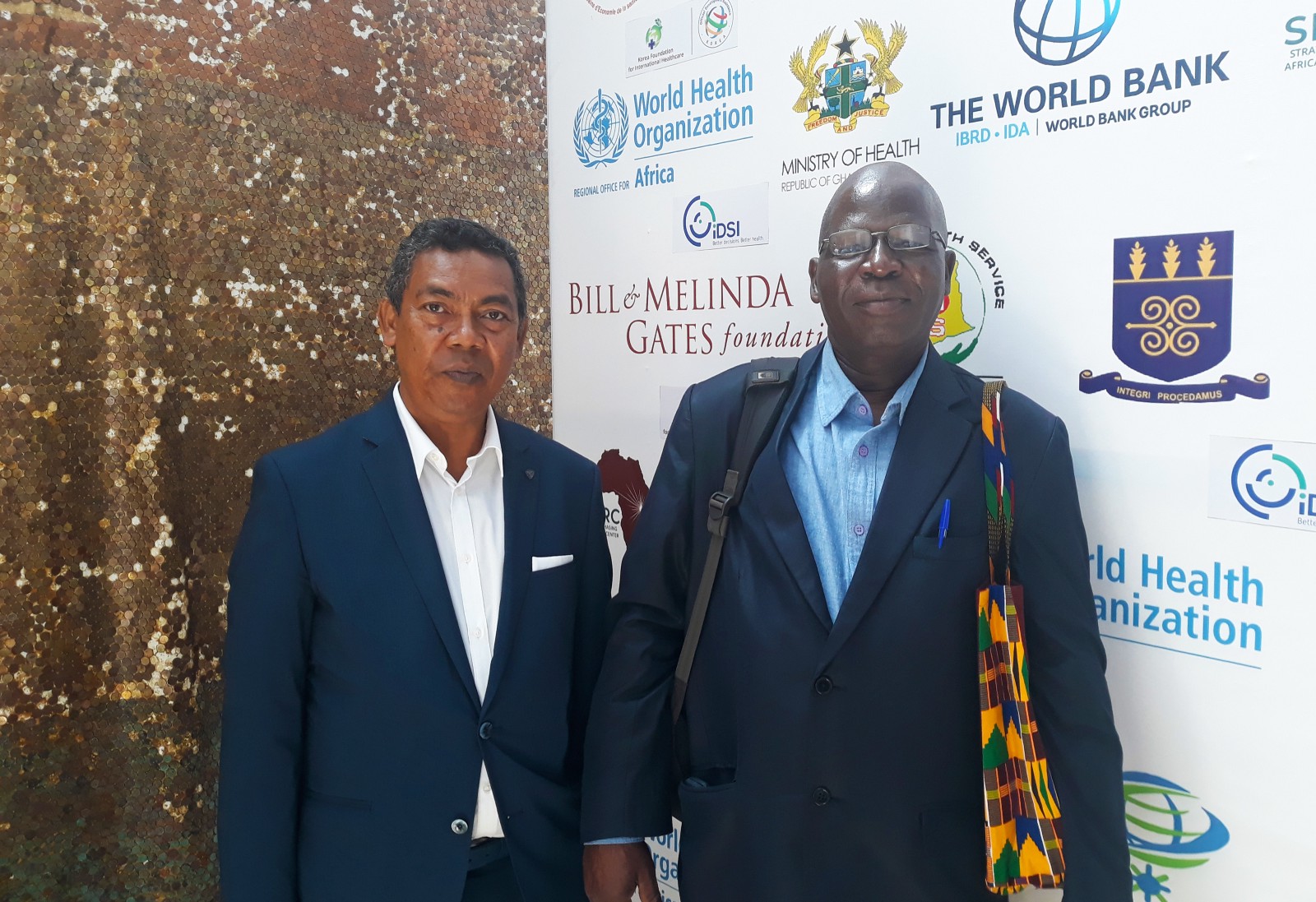with our monthly newsletter.
A Malian community health worker at a community outpost. Credit: Souleymane Bathieno for HP+
While there is no standard approach to achieving universal health coverage, Palladium's Birama Djan Diakité and Eli Ramamonjisoa explore a few key approaches that can be applied across contexts.
Recently, we had the opportunity to travel to Accra for the 5th African Health Economics and Policy Association (AfHEA) Conference. There, hundreds gathered to discuss if and how securing primary healthcare could be the foundation for making progress on universal health coverage (UHC) in Africa.
While there, we learned from colleagues representing countries more advanced in their paths toward UHC than the ones we represent. Working as health economists in Mali and Madagascar, two low-income countries, it was particularly useful and interesting for us to understand the evolution of UHC in countries like Rwanda, Ghana, Nigeria, and Senegal, and how their experiences can inform approaches in our country contexts.
While there is no standard approach for reaching UHC, this kind of South-South learning - so organic in venues like AfHEA - can help us all to resolve some of the common challenges we face. From these exchanges, we did observe a few key lessons for advancing UHC that seem to exist, regardless of context. Specifically, the need to:
1. Develop the capacity of policy- and decision-makers
There is still a lack of global understanding of the concepts and interconnectivity of UHC, the economy, and health financing, and their importance in creating social value. Because of this, it is important to raise awareness and inform stakeholders and policy-makers about these concepts. If policy-makers do not fully grasp the effort needed to reach UHC and/or a sustainable health system, it will be almost impossible to change or develop policies to support reform. For example, in Madagascar, the government developed a pre-payment mechanism for health called the National Health Solidarity Fund which would not have been possible without strong political support and understanding and a commitment to establishing its legal framework.

2. Emphasize the importance of research in policy development to strengthen health systems
It is important that decision-makers have the necessary evidence to make informed decisions. As an example, we presented a study conducted by the USAID-funded Health Policy Plus project, led by Palladium, on the cost of community health workers in Mali to determine the resources needed to formally integrate community health workers into the national health sector budget. This data will inform policy-makers' decisions about the financing needs for community health workers, but will also be useful for thinking about the Government of Mali's approach to health insurance. Policy-makers need more analyses, for example on strategic purchasing, to help make the right decisions concerning a country’s approach to UHC.
3. Primary healthcare and strengthening the health system itself, are essential to reach UHC and priority interventions need to be defined
Primary healthcare remains the foundation of any health system. As a result, in the absence of strong system building blocks like high-quality services, skilled providers, an effective health information system, and sustainable health financing, countries lack the necessary foundation and cannot achieve UHC. Madagascar is a Global Financing Facility-selected country and, at the conference, we presented the experience of developing a reproductive, maternal, newborn, child, and adolescent health and nutrition investment case in alignment with the country's UHC approach. We shared that it was important for stakeholders to prioritize interventions and have a common vision on what was needed to accelerate the pace of meeting its objectives and have a positive impact. This focus on primary healthcare and health systems strengthening is important for all countries to move towards UHC.
Although AfHEA's 300-plus participants came from over 30 different countries, each with its unique context, we remarked on our similarities. We also noted the differences in policy approaches and successes between countries. Countries that showed further advancement towards UHC also demonstrated stronger political commitment to domestic resource mobilization and support for relevant reforms. To reach UHC and to have the greatest positive impact, countries will need to mobilize more domestic resources and find ways to ensure high-quality healthcare, even for the most vulnerable. But what might be required most of all is a change in mentality. Governments, decision-makers, and citizens must all feel a shared responsibility to not be dependent on external resources and have the motivation to take action to ensure all citizens have equitable access to healthcare.
This article originally appeared in Medium and was republished with permission.
with our monthly newsletter.
